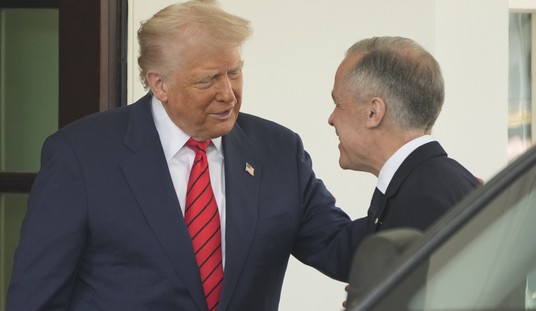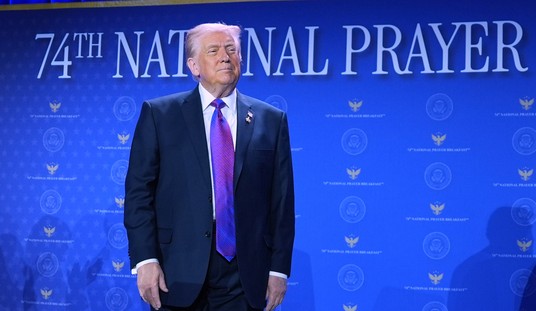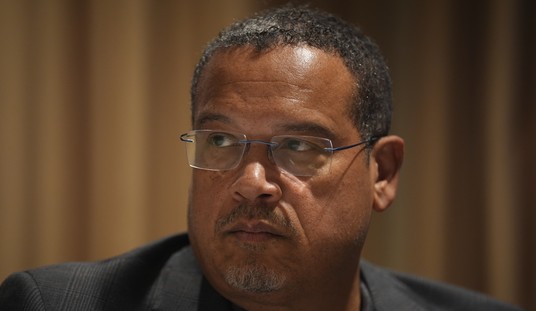Noah picked up on this change in tone from Barack Obama yesterday, but he wasn’t alone. The Washington Post’s Scott Wilson also noticed that Obama went from bragging about “ending the Iraq war” by pulling out all American troops — which had been an oft-repeated campaign pledge in 2007-8 — to suddenly changing to passive voice yesterday about the lack of American troops in Iraq in a war that everyone now knows is far from over. Wilson recalls that Obama described it very differently in 2011, and in the presidential campaign of 2012 too:
President Obama surprised a few people during a news conference Thursday by claiming that the 2011 decision to withdraw all U.S. forces from Iraq, a politically popular move on the eve of an election year, was made entirely by his Iraqi counterpart. The implication ran counter to a number of claims that Obama has made in the past, most notably during a tight campaign season two years ago, when he suggested that it was his decision to leave Iraq and end an unpopular war. …
In the 2012 campaign’s stretch, Obama and Republican nominee Mitt Romney met inside the performing arts center of Lynn University for the last of three presidential debates. The race remained close, and in the weeks after the Sept. 11, 2012, attacks on the U.S. diplomatic mission and CIA-run annex in Benghazi, Libya, the Romney team saw foreign policy as an area of potential vulnerability for the incumbent. The debate focused on the issue.
For much of that election year, Obama had included a line of celebration in his standard stump speech, one that among an electorate exhausted by more than a decade of war always drew a rousing applause: “Four years ago, I promised to end the war in Iraq,” Obama proclaimed in Bowling Green, Ohio, in September 2012, and did nearly every day after until the election. “We did.”
In fact, as Wilson recalls, Obama objected when Mitt Romney declared during a debate that both he and Obama would have preferred a status-of-forces agreement (SOFA) that left a residual force in Iraq:
“With regards to Iraq, you and I agreed, I believe, that there should be a status of forces agreement,” Romney told Obama as the two convened on the Lynn University campus in Boca Raton, Fla., that October evening. “That’s not true,” Obama interjected. “Oh, you didn’t want a status of forces agreement?” Romney asked as an argument ensued. “No,” Obama said. “What I would not have done is left 10,000 troops in Iraq that would tie us down. That certainly would not help us in the Middle East.”
Here’s that exchange from the October 2012 debate, for those who need their memories refreshed as much as the President:
It’s true that the issue of immunity had become a sore spot with the Iraqis. Even during the Bush years, the Iraqi government wanted the US to waive immunity, which both the Bush and Obama administrations refused to do, and for very good reasons. The upcoming 2008 election gave Maliki the option of pressing the matter with the next President rather than Bush, which is one reason why the 2008 SOFA didn’t deal with either ending immunity or a long-term residual force.
Obama made it clear from 2007 forward that he didn’t want to stay in Iraq. He won an election in part on that pledge; the economy was certainly the big issue, but the difference between Obama and McCain on Iraq (and interventionism in general) was also a big part of that election. If Obama had been committed to the mission in Iraq, he could have forced Maliki into giving up on the immunity demand. But Obama clearly wasn’t committed to that mission; he opposed it — and got elected by the American people in part because of that opposition. As Dexter Filkins notes, the immunity issue was a welcome lever to fulfill that campaign pledge.
So yes, Obama chose to end the American presence in Iraq. Yesterday’s dodge shows how much the consequences of that decision have changed the way it looks, and Obama wants to run from it. Unfortunately, he’s on the record bragging about that decision so often that the passive voice is laughable now, and a demonstration of Obama’s weakness.








Join the conversation as a VIP Member